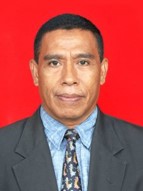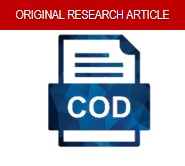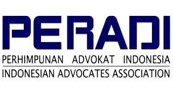The Legal Politics of Establishing the Asset Seizure Law
A New Strategic Paradigm for Combating Corruption and Economic Crimes in Indonesia
DOI:
https://doi.org/10.46924/jihk.v6i2.239Keywords:
Legal Politics, Asset Seizure, Corruption, Economic CrimeAbstract
This study examines the legal politics underlying the formation of the Asset Seizure Law in Indonesia as a strategic initiative to combat corruption and other economic crimes. Employing library research methods and a juridical-normative approach, the study explores the background, legal concepts, and the impact of legal politics on the regulation’s development. The primary focus is a comprehensive analysis of the paradigm shift from a criminal to a civil approach, emphasizing the application of the principle of non-conviction-based asset forfeiture to expedite asset Seizure without requiring a criminal conviction. The findings indicate that this law addresses technical and administrative challenges in asset Seizure while balancing state interests with the protection of individual rights. With transparent and accountable regulations, the Asset Seizure Law is anticipated to enhance the effectiveness of law enforcement and bolster public trust in Indonesia’s legal system.
Downloads
References
Journals
Andri, Andri, and Supanto Supanto. “Pembuktian Terbalik Terhadap Perampasan Aset Dalam Perkara Tindak Pidana Pencucian Uang Hasil Kejahatan Narkotika.” Jurnal Hukum Dan Pembangunan Ekonomi 5, no. 1 (2017): 59–68.
Bayangkara, Bernadus Andika, Aartje Tehupeiory, and Diana R.W.Napitupulu. “Analisis Yuridis Perlindungan Hukum Bagi Masyarakat Di Perumahan Forest Hill (Pihak Ketiga) Atas Perampasan Asset Tanah Oleh Negara Perkara Tindak Pidana Korupsi PT. ASABRI.” Action Research Literate 8, no. 5 (2024): 1–11. https://doi.org/10.46799/arl.v8i5.359.
Ismail, Ahmad. “Aspek Hukum Perampasan Aset Dalam Tindak Pidana Korupsi.” Jurnal Studi Hukum Dan Kebijakan 5, no. 1 (2020): 45–53.
Mukminah, Lily Solichul, Hartiwiningsih Hartiwiningsih, Otto Yudianto, and Hufron Hufron. “The Importance of Regulating Non-Concivtion Based Forfeiture in Corruption Cases in Indonesia.” Iblam Law Review 3, no. 2 (2023): 31–45. https://doi.org/10.52249/ilr.v3i2.125.
Saputra, Refki. “Tantangan Penerapan Perampasan Aset Tanpa Tuntutan Pidana (Non-Conviction Based Asset Forfeiture) Dalam RUU Perampasan Aset Di Indonesia.” Integritas: Jurnal Antikorupsi 3, no. 1 (2017): 115–130. https://doi.org/10.32697/integritas.v3i1.158.
Siahaan, Albert Lodewyk Sentosa, Budiman Ginting, Muhammad Yamin, and Faisal Akbar Nasution. “Legal Certainty of Gustav Radbruch Based on Tax Imposition on Land Acquisition and Building Rights on Sale and Purchase of Land and Building in Medan City.” International Journal of Religion 5, no. 11 (2024): 2900–2907. https://doi.org/10.61707/gvzncp60.
Pranoto, Sigit. “Peran Penegak Hukum Dalam Pemberantasan Tindak Pidana Pencucian Uang Di Indonesia.” Jurnal Hukum & Pembangunan 38, no. 2 (2019): 14–25.
Sianipar, Ferry Agus, Nandang Sambas, and Oksidelfa Yanto. “The Indonesian Arrangement of Asset Forfeiture Draft as Reform Efforts in Recovering State Losses Due to Corruption: A Comparative Study of United States Code.” Journal of Court and Justice 3, no. 2 (2024): 29–46. https://doi.org/10.56943/jcj.v3i2.509.
Sosiawan, Ulang Mangun. “Peran Komisi Pemberantasan Korupsi (KPK) Dalam Pencegahan Dan Pemberantasan Korupsi.” Jurnal Penelitian Hukum De Jure 19, no. 4 (2019): 517–38. http://dx.doi.org/10.30641/dejure.2019.V19.517-538.
Books
Genç, H. Deniz. “International Organisations and Norm Diffusion: The Case of UNODC in Central Asia.” In The Political Economy of Central Asian Law. International Political Economy Series, edited by Timothy M. Shaw, 79–111. Cham: Palgrave Macmillan, 2024. https://doi.org/10.1007/978-3-031-55341-7_4.
Mahmodin, Mohammad Mahfud. Politik Hukum Di Indonesia. 3rd ed. Jakarta: Rajawali Pers, 2010.
Rahardjo, Satjipto. Hukum Dan Masyarakat. Bandung: Sinar Baru, 2018.
Soekanto, Soerjono. Faktor-Faktor Yang Mempengaruhi Penegakan Hukum. Jakarta: Rajawali Pers, 2016.
Supriyadi, Agus. Korupsi Dan Kebijakan Hukum Di Indonesia. Jakarta: PT. Gramedia Pustaka Utama, 2020.
———. Reformasi Sistem Hukum Di Indonesia: Upaya Membangun Kepercayaan Publik. Jakarta: PT Gramedia Pustaka Utama, 2020.
Widodo, Dwi. Peran Indonesia Dalam Kerangka UNCAC. Yogyakarta: Gadjah Mada University Press, 2019.
Downloads
Published
Issue
Section
License
Copyright (c) 2024 Muhammad Nur Khaliq, Siti Fatimah

This work is licensed under a Creative Commons Attribution 4.0 International License.
Authors who publish with this journal agree to the following terms:
- Copyright on any article is retained by the author(s).
- The author grants the journal, the right of first publication with the work simultaneously licensed under a Creative Commons Attribution License that allows others to share the work with an acknowledgment of the work’s authorship and initial publication in this journal.
- Authors are able to enter into separate, additional contractual arrangements for the non-exclusive distribution of the journal’s published version of the work (e.g., post it to an institutional repository or publish it in a book), with an acknowledgment of its initial publication in this journal.
- Authors are permitted and encouraged to post their work online (e.g., in institutional repositories or on their website) prior to and during the submission process, as it can lead to productive exchanges, as well as earlier and greater citation of published work.
- The article and any associated published material is distributed under the Creative Commons Attribution 4.0 International License



 Sinta ID:
Sinta ID: 


















